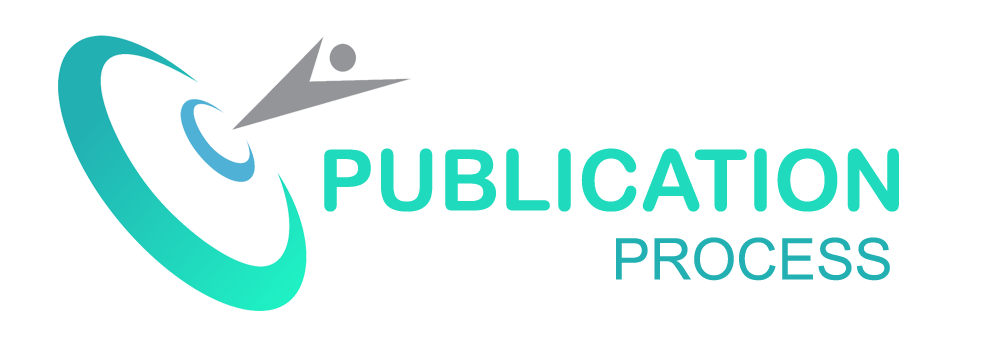PENGARUH PROMOSI JABATAN DAN KOMPENSASI TERHADAP MOTIVASI SERTA IMPLIKASINYA TERHADAP PRODUKTIVITAS KERJA KARYAWAN PADA PERUSAHAAN MANUFAKTUR DI CIKARANG
DOI:
https://doi.org/10.36805/manajemen.v3i1.239Abstract
ABSTRACT This study aims to explain the influence of promotion and employee compensation to employee motivation that have implications on work productivity of manufacturing company in cikarang , in this study the sample used as many as 120 people with positions foreman and junior section head section production of manufacturing company in Cikarang. Data collection is done through direct observation, questionnaires, library research obtained through interviews and internal data collection of companies and relevant references. This research uses explanatory research type with quantitative approach. Method of data analysis using descriptive analysis method with path analysis. The result of the research shows that job promotion has a significant effect on work motivation 26,7%, compensation has significant effect to work motivation equal to 16,4%, and work motivation have significant effect to work productivity 22,8%, on the productivity of work has a significant effect of 8% smaller than the indirect effect of 54% through motivation, compensation does not directly affect the productivity of work and promotion positions, compensation and motivation simultaneously have a significant effect on work productivity of 61.9% while 38.1% is another influence that is not examined. Keywords: Motivation, Job Promotion, Compensation and ProductivityDownloads
References
Daftar Refernsi
Hasibuan, S.P Malayu. 2016. Manajemen Sumber Daya Manusia. Edisi Revisi, Jakarta : Bumi Aksara.
Mangkunegara, Prabu Anwar. 2016. Manajemen SDM Perusahaan. Bandung : Remaja Rosdakarya Offset.
Dessler, Gary. 2010. Manajemen Sumber Daya Manusia. Edisi Kesepuluh Jilid 1, Jakarta : PT Indeks.
Noe, Raymond A. Hollenbeck, John R. Gerhart, Barry & Wright, Patrick M. 2014. Manajemen Sumber Daya Manusia : Mencapai Keungulan Bersaing. Edisi 6, Jakarta : Salemba Empat.
Sugiyono, 2014. Metode Penelitian Manajemen. Cetakan ke-3, Bandung : CV Alfabeta.
Sunyoto, Danang. 2015. Penelitian Sumber Daya Manusia. Cetakan Pertama, Yoyakarta : Center of Academic Publishing Service.
Riduwan. 2015. Skala Pengukuran Variabel-variabel Penelitian. Cetakan Kesebelas, Bandung : CV Alfabeta.
Riduwan. 2015. Metode & Teknik Menyusun Proposal Penelitian. Cetakan Ke-6, Bandung : CV Alfabeta.
Team Penyusun. 2017. Panduan Penyusunan Tesis MM Unsika 2017. Edisi Ke-5, Karawang : Uniska .
Ruky, Achmad S. 2016. Strategi, Kebijakan, dan Cara Penataan Upah, Gaji, dan Remunerasi. Cetakan pertama. Jakarta : PT. Intipesan Pariwara.
Riduwan & Kuncoro, Engkos Achmad. 2014. Cara Mudah Menggunakan dan Memaknai Path Analysis ( Analisa Jalur). Cetakan keenam, Bandung : CV Alfabeta.
Siregar, Sofian. 2013. Metode Penelitian Kuantitatif. Edisi Pertama, Jakarta : Prenadamedia Group.
Uno, Hamzah B. & Lamatenggo, Nina. 2014. Teori Kinerja dan Pengukurannya. Jakarta : PT. Bumi Aksara.
Fasysica, Magdalena. Towal, Bernlard & Walangitan, Mac Donald. 2016. Pengaruh Motivasi Kerja, Kompensasi dan Motivasi Kerja terhadap Kepuasan Kerja Karyawan. Jurnal Berkala Ilmiah Efisiensi. Volume 16 no 4. Manado : Universitas Sam Ratulangi.
Heidjrachman, 2002. Manajemen Personalia, Cetakan Sepuluh. Penerbit : BPFE, Yogyakarta.
Hakim, A Khairul. 2011. Pengaruh Kompensasi dan Motivasi Terhadap Produktivitas Pegawai. Jurnal Manajemen & Bisnis Vol II No 2. ISSN 1693-7619.
H.M. Burhan Bungin, Metodologi Penelitian Kuantitatif, Jakarta: Prenada Media, 2005, hlm. 75
Sudiarta, I Gede Arya. Indrawati, Ayu Dewi. 2015. Pengaruh Motivasi, Kompensasi Finansial dan Lingkungan Kerja Fisik Terhadap Produktivitas Karyawan Pada PT Arta Prima. E-Jurnal Manajemen Univeristas Udayana, Vol 4 no 2. Denpasar.
Mathis, Robert L dan Jackson. 2006. Manajemen Sumber Daya Manusia. Jakarta: Salemba Empat
Martoyo, Susilo. 2007. Manajemen Sumberdaya Manusia. Edisi 5. BPFE. Yogyakarta
Moeheriono. 2012. “Pengukuran Kinerja Berbasis Kompetensiâ€. Jakarta: Raja Grafindo Persada
Notoatmojo, Soekidjo, (2009). “Pengembangan Sumber Daya Manusiaâ€. Jakarta : PT. Rineka Cipta.
Rivai, Veithzal. 2005. Manajemen Sumber Daya Manusia untuk Perusahaan : dari Teori ke Praktik. Jakarta : PT Raja Grafindo Persada.
Priyanto, Duwi, (2008). “Mandiri Belajar SPSSâ€. Yogyakarta : Mediakom.
Simamora, Henry. (2004). “Manajemen Sumber Daya Manusiaâ€. Yogyakarta : STIE YKPN.
Singarimbun Masri dan Efendi Sofian, (2006). “Metode Penelitian Surveiâ€. Jakarta : LP3ES.
Sutrisno, Edy. 2010. Manajemen Sumber Daya Manusia. Edisi 1. Cetakan Kedua. Prenada Media Group. Jakarta
Santoso, Singgih. (2004). “SPSS Versi 12â€. Jakarta : Gramedia Pustaka Utama.
Siagian, Sondang P. 2001. Manajemen Sumber Daya Manusia. Jakarta : Bumi aksara.
Sinungan Muchdarsyah, 2008. Produktivitas Apa dan Bagaimana. Jakarta: PT Bumi Aksara
Stonner, James, A.F. 2002. Manajemen. Edisi II. Prenhalindo ; Jakarta
T Hani Handoko, (2008). “Manajemen Personalia dan Sumber Daya Manusiaâ€. Cetakan Ke 16, Yogyakarta.
Terry, R George. (2005). “Dasar-dasar Manajemenâ€. Cetakan Ke Sembilan, Jakarta : PT. Bumi Aksara.
Downloads
Published
Issue
Section
License
Authors who publish in Jurnal Manajemen dan Bisnis Kreatif agree to the following terms:
- Authors retain copyright and grant the journal right of first publication with the work simultaneously licensed under a Attribution-ShareAlike 4.0 International (CC BY-SA 4.0) License that allows others to share the work with an acknowledgment of the work's authorship and initial publication in this journal.
- Authors are able to enter into separate, additional contractual arrangements for the non-exclusive distribution of the journal's published version of the work (e.g., post it to an institutional repository or publish it in a book), with an acknowledgment of its initial publication in this journal.
- Authors are permitted and encouraged to post their work online (e.g., in institutional repositories or on their website) prior to and during the submission process, as it can lead to productive exchanges, as well as earlier and greater citation of published work (See The Effect of Open Access).








